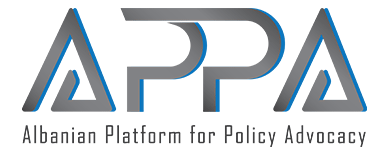
Megi Llubani
Trafficking in human beings
This month the US State Department published “’Trafficking in Persons Report 2015”, an annual analysis that evaluates the pace of different places of the world on the fight against human trafficking.
Even though Albania can’t be considered a transition country anymore, after 25 years of the comunism regime fall, the human trafficking phenomenon, especially with children and women is still present in different forms, including sexual and economic exploitation. From the beggining of the report key problematics can be identified that prevent the rule of law in this field. In more details: “Corruption and high profit norms inside the police forces prevent law inforcment actions in order to address the trafficking problem. Official complicity in traficking crimes remains a considerable concern. A member of the Parliament has had previous convictions for human trafficking related crimes”.
Eventhough a growing number of the persons sentenced for such crimes and improvment in quantitative terms since 2013 of the Antitraffic National Coordinator work, essentially problematic issues such as corruption in the police forces and representation in the highest instances of the Albanian state, like the parliament, of citizens with criminal records related to trafficking affect the beliefs that the efforts of the Ministry of Interior Affairs and its structures to fight the human trafficking phenomenon are substantial. Further more according to the report: “The Albanian government doesn’t fully meet the minimum standarts for trafficking elimination”, this evaluation stands for the last three years (2013, 2014, 2015).
However, on a positive note, is to be appreciated the release of the detailed plan of activities related to the phenomenon, starting from July to December 2015. These activities include different discussion forums, summer camps, meetings for the 6 months analysis on war against trafficking performance and other initiatives of social and economic character that include a large range of actors affected by the phenomenon.
The 2014-2017 strategy of war on human trafficking addresses a number of aspects from prevention to the victims defence in collaboration with other non-state and foreign actors. Despite the excessive focus on trainings (of police forces, judges, social employees etc.) of the Action Plan, it doesn’t address some of the issues identified by the State Department Report, so the corruption on high levels and among state police employees that prevent in a considerable manner the fight against human trafficking in Albania, a country that remains a source and destination on this matter.
Religious radicalism – a growing concern
Another growing phenomenon in Albania is religious radicalism and violent extremism. Reports from the Ministry of Interior Affairs say that about 150 Albanian citizens have joined the Islamic State and the war in Syria since its beginning in 2011-2012. While the minister, Mr. Tahiri, actively attends national, regional and international conferences and letter of thanks by the US State Secretary on the role of the Albanian state in preventing religious radicalization, Albanian citizens keep on getting crimanal proceedings and other citizens keep on dying in the war arena. These facts don’t create consequences only for the persons involved, but even for their families that many times involuntarily have retreated, creating insecurity and fear for their future.
In a study of the Institute for Democracy and Mediation, the lack of preparation of the Albanian state and other segments of society to face and find the right solutions for the phenomenon, is being highlighted. Among the recommendations given by the study: “Use of violence, persecution and abuse by law enforcement bodies provoces feelings of revenge and facilitates the possibility of supporting violent extremist groups. Therefore, it is required that the personnel of these law enforcement agencies receives the appropriate training on essential human rights and freedoms. At the same time, through civil education programs, the citizens should be informed on their rights, and community policing should be promoted”.
Lacking transparency
In the framework of the transparency and public information program (section on the official website that is continuously not updated and inaccessible), the Ministry of Interior Affairs releases a monthly informative bulletin, where the 1 month work analysis of the ministry is submitted. Graphically the report is well written and almost every work element of this ministry is analyzed. However, it is important to mention that on the official website the June reports are missings. Maybe this negligence is due to the overloaded election period and the many activities held during this time. It remains to be seen if the ministry will keep on doing these reports or it will be neglected like other undertaken iniciatives since the coming in power of this government.
Another assistance in the fight against organized crime
At the beggining of the month an agreement was signed between the Republic of Albania and the US on narcotics control and law enforcement. The agreement will consist of an assistance of 7 788 000 US $ by the US in the war against organized crime and criminal justice. Some of the aims of the agreement include the development of criminal justice system through improved legislation, normative framework review and increase of public access in the judicial system, especially in criminal justice.
While every assistance and expertise sharing is neccessay for the institution’s work improvment, we can’t go without asking ourselves how in a 25 years democratic country there is still a need for an essential foreign assistance in addressing the challenges, especially related to corruption and organized crime. Furthermore in a country that aims and thinks that deserves to be part of the Eurepean Union, that tries to export it’s model of good-governance in other countries.
References:
Faqja zyrtare e Ministrisë së Punëve të Brendshme në Internet. Online: www.punetebrendshme.gov.al
Instituti për Demokraci dhe Ndërmjetësim. 2015. Radikalizmi fetar dhe ekstremizmi i dhunshëm në Shqipëri.
Ministria e Punëve të Brendshme. Koordinatori Kombëtar Antitrafik.
U.S. Department of State. Trafficking in Persons Report. July 2015. Online:
http://www.state.gov/documents/organization/245365.pdf
U.S. Department of State. Trafficking in Persons Report. July 2014. Online:
http://www.state.gov/documents/organization/226845.pdf
U.S Department of State. Trafficking in Persons Report. July 2013. Online:
http://www.state.gov/documents/organization/210738.pdf
Vendim 814 date 26.11.2014. Strategjia e luftës kundër trafikimit të personave – Plani i Veprimit 2014 – 2017. Online: http://shtetiweb.org/wp-content/uploads/2014/06/L3-Strategjia-e-Luftes-kunder-TRafikimit-te-Personave-Plani-i-Veprimit-2014-2017.doc




